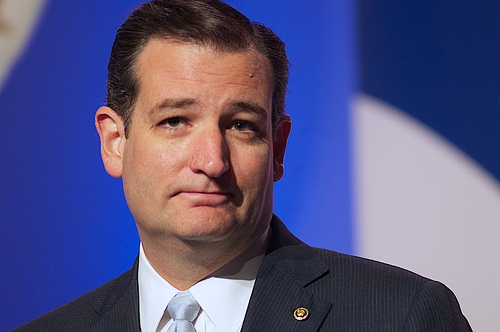And higher premiums for everyone else

Last year, about a month before the Affordable Care Act exchanges were set to open and Republicans in Washington D.C. were vowing to shut down the government to defund the law, Bill Clinton gave a speech at his Presidential Library in Little Rock, Arkansas.
The simple case he made for the law that day could be summed up with one line from his speech: “It’s better than the current system, which is unaffordable and downright unhealthy for millions of Americans.”
Less than a year later, the state that Clinton served as governor for nearly a decade is proving to be the best example that President Obama’s health reforms work — when they aren’t sabotaged.
The bright red state led by Democratic governor Mike Beebe convinced the Republican-led legislature to expand Medicaid using a “private option” that puts beneficiaries into the state’s exchange.
The result? Arkansas has had the largest percentage point drop in its uninsured population of all 50 states — from 22.5 percent to 12.4 percent. That’s a 45 percent reduction in the state’s uninsured population.
And what happens when your state sees that kind of massive reduction in those without health coverage? Insurance premiums could be falling — yes, FALLING.
After premiums doubled under George W. Bush and rose 10 percent a year before Obamacare took full effect, we may be seeing the first decline in costs in recent memory.
Arkansas Times reporter Davey Ramsey explains the news with some caveats:
Based on the 2014 market share on the exchange, if the proposed rates were approved, the net impact on rates on the Marketplace (the weighted average for those three carriers) would be a decrease of 3.5 percent. Given that premiums tend to increase annually, this would be huge news for the Marketplace and for the private option if it comes to pass.
Before proceeding, a note of caution: these are not finalized rates. In the case of BCBS, negotiations may still be ongoing with AID (it’s even possible that AID could push for lower*), and while AID has reviewed the rates for QualChoice and Ambetter, all of them still need to be approved by the feds. A second note of caution: AID declined to comment other than to state that the information had been posted publicly in error and was not finalized. The agency would not verify the accuracy of the information. A spokesperson for Blue Cross Blue Shield likewise would not confirm the accuracy of the information, referring me back to AID. So until we get confirmation, keep some grains of salt handy.
Bad Obamacare news generally travels around the world before it’s usually debunked. But good Obamacare news tends to be reported on a few left-leaning blogs then forgotten. So even if this news is confirmed don’t expect it to be widely reported, even though it would be good news for those proponents of Medicaid reform who feel the some privatization will keep costs down.
You should also not expect people to use Arkansas’ success to point out how other red states are robbing their states of benefits that their residents and corporations going to be paying for anyway.
This success story only serves to prove the remarkable tributes of heartless indifference going on in the red states that are purposely sabotaging law, making the Republican Party a leading cause of preventable death.
If Texas, which has the largest uninsured population in the nation by design, duplicated Arkansas’ efforts, its population of 6.1 million uninsured would to 3.4 million — a drop of 2.7 million uninsured, according to ACASignups.net’s Charles Gaba.
Instead, Texas’ GOP leaders refused to expand Medicaid or engage in any sort of outreach to encourage enrollment whatsoever. The result? The state’s uninsured population went down by 3 percentage points — a reduction of about 11 percent. Instead of 2.7 million gaining coverage, 670,000 did. And given that 6.1 million Texans lack insurance, a minimal effort would have resulted in millions becoming insured.
Arkansas and Kentucky, the other red state that did Obamacare right, have delivered such undeniable results that despite the unpopularity of the name Obamacare, Democratic candidates have begun embracing the reforms. They’re also going after their Republican opponents for calling for repeal with no explanation what will happen to the hundreds of thousands of people in these two states who have gained Medicaid coverage — but not hard enough.
I argue that Democrats nationally should be making the argument that the GOP’s Obamacare repeal fetish is proof that they’ll take the Medicare you’ve been promised next. But I don’t have pollsters to back me up or a career to lose.
All I have is a sense of outrage at the extraordinary lengths Republicans will go to punish their own voters to keep a policy Mitt Romney ran on in 2008 from succeeding in the states that need it most.
Around 5 million people in red states could already be enjoying the nearly immediate benefits of Medicaid — which include reduced hospitalization, less financial hardship and reduced depression.
And I continue to be amazed that there isn’t enough outrage to cost more politicians their careers.
CORRECTION: This post originally stated that Arkansas built its own exchange. It didn’t, which means it could be in an even more precarious position if the specious libertarian-led lawsuit to take subsidies away from residents of states that did not build their own exchanges.
[ Image by jbouie | Flickr]



